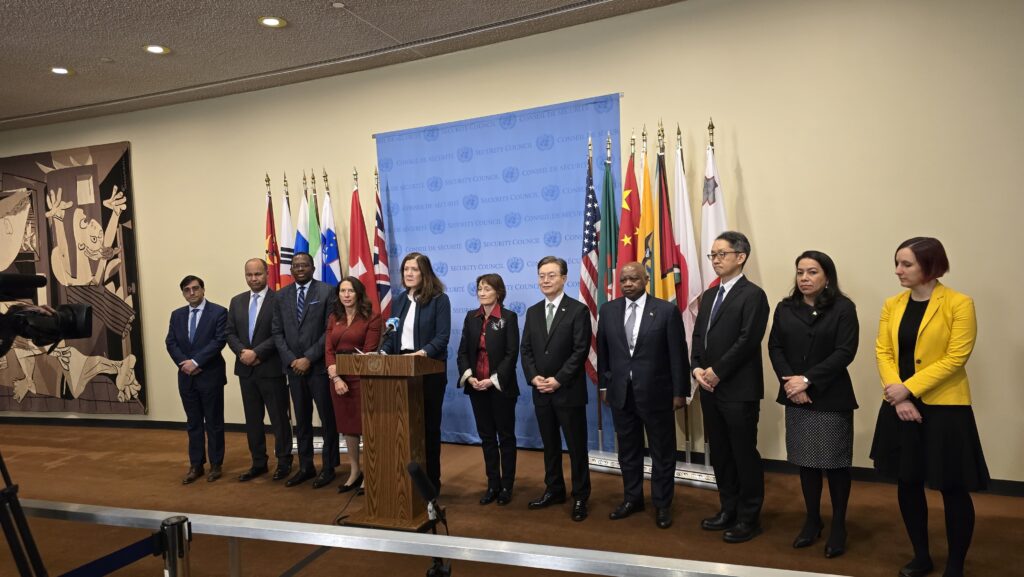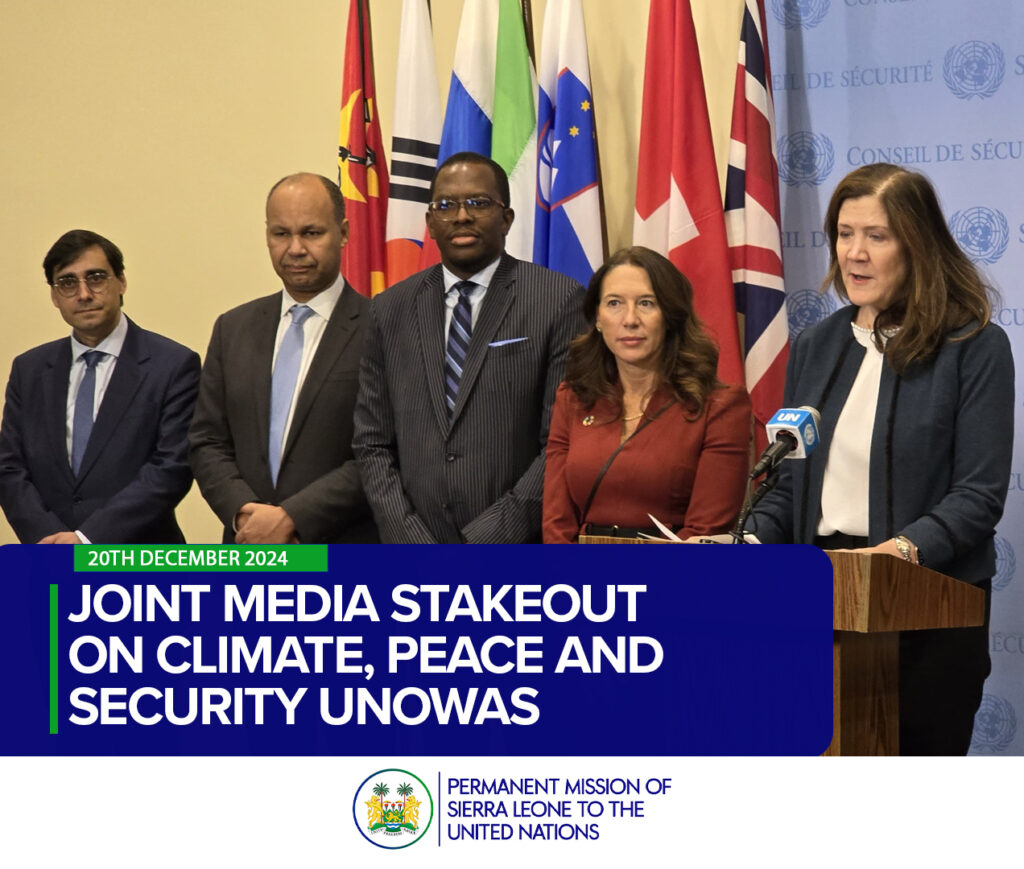We, the Security Council members that have joined the Joint Pledges on Climate, Peace and Security — France, Guyana, Japan, Malta, Mozambique, the Republic of Korea, Sierra Leone, Slovenia, Switzerland, the United Kingdom, and my own country, the United States — have come together to highlight the adverse impacts of climate shocks on peace and security in West Africa and the Sahel ahead of today’s Security Council meeting on the activities of the UN Regional Office UNOWAS.
By acknowledging the challenges posed by climate change, energy insecurity, environmental degradation, and natural disasters, the UNOWAS mandate provides a solid foundation for strengthening peace and security initiatives in the region. We therefore welcome UNOWAS’ proactive approach to climate, peace, and security, including its climate security advisor.
We call upon UNOWAS, within its mandate, and the UNSC to join with other UN bodies to prioritize global climate mitigation and adaptation measures to address climate impacts in the Sahel. Relevant actors also must mitigate conflict between communities resulting from the competition for increasingly scarce natural resources. Stakeholders must protect water resources, farming and grazing lands, and pursue sustainable forest management practices.
We welcome the recent visit of the Informal Expert Group on Climate, Peace, and Security (IEG) of members of the United Nations Security Council to the Lake Chad Basin region. This mission highlighted the urgency of addressing climate change as an exacerbating factor of intercommunal violence including farmer-herder conflicts; recruitment and radicalization by terrorist groups; and increasing vulnerabilities among women, youth, and children. It also showcased the potential for regional cooperation, innovative solutions, and community-led initiatives to build resilience and promote peace.
We renew our call for the full, equal, meaningful and safe participation of women at all stages of the peace process, including conflict prevention. The agricultural nexus with the Women, Peace and Security and Youth, Peace and Security agendas is crucial in regions such as the Sahel, where 78 percent of the labor force’s livelihoods are tied to agriculture and herding.
The time has come to accelerate action and ensure that those who are most impacted by impacts of climate shocks are meaningfully included in designing and funding solutions, from the carbon market mechanism and green bonds to changes in infrastructure and farming, fisheries, and aquaculture. Investment in climate action not only strengthens our resilience, but also promotes international peace and security.




